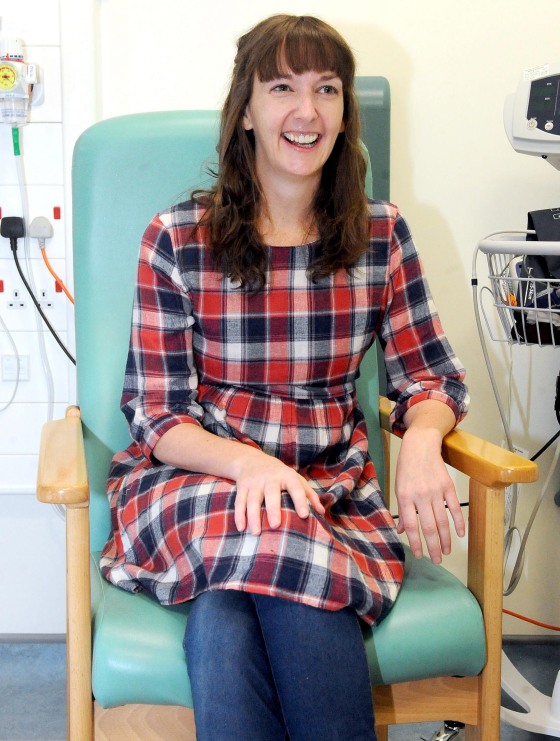A British nurse who suffered a rare and potentially deadly complication from Ebola is better, doctors said Wednesday.
Pauline Cafferkey is recovering in a hospital isolation unit after she developed meningitis from Ebola virus that had apparently stayed in her spinal fluid months after she recovered, Dr. Michael Jacobs of the Royal Free Hospital in London told reporters.
"She is inside the isolation unit," Jacobs said. "But she's talking freely with the staff, using the iPad, beginning to eat a little,” he added. "I think she has a long recovery ahead of her and will be with us for quite a while still."
Cafferkey recovered from Ebola last January, but the virus can sometimes stay in certain parts of the body and it appears to have remained in her spinal fluid, doctors said. It’s not clear what triggered the flare-up that threw her into critical condition for a while.
"But to be very clear about this, she hasn't been re-infected with the Ebola virus,” Jacobs said.
Although Cafferkey is in isolation, Ebola experts say it would be very unlikely that she could infect someone else.
Like many different viruses, the Ebola virus can remain in so-called immune privileged sites in the body such as the fluid inside the eyes, the testicles and the brain and spinal cord. These are areas where immune system cells that normally kill viruses have a hard time entering.
Related: What's Out There to Treat Ebola?
Cafferkey’s being given an experimental drug called GS5734, Jacobs said.
"This is a highly experimental treatment," he said. "We don't know if it's of benefit to her."
Gilead Sciences is testing the drug in a few volunteers in what’s called a Phase I trial to see if it’s safe. The company and experts at the Centers for Disease Control and Prevention and the United States Army Medical Research Institute of Infectious Diseases (USAMRIID) found the drug by screening known compounds in a computer database.
Tests in monkeys showed it could save them from an Ebola infection. It’s not clear how it might work in people.
The company confirmed it had provided the drug to Cafferkey.
"The question is can we be sure that we can completely clear the virus?” Jacobs said. “"Over time we anticipate that the virus will be completely eradicated.”
Ebola has infected more than 28,000 people in the epidemic in Sierra Leone, Guinea and Liberia. More than 11,000 of them have died — possibly many more, since records are incomplete, the World Health Organization said.

